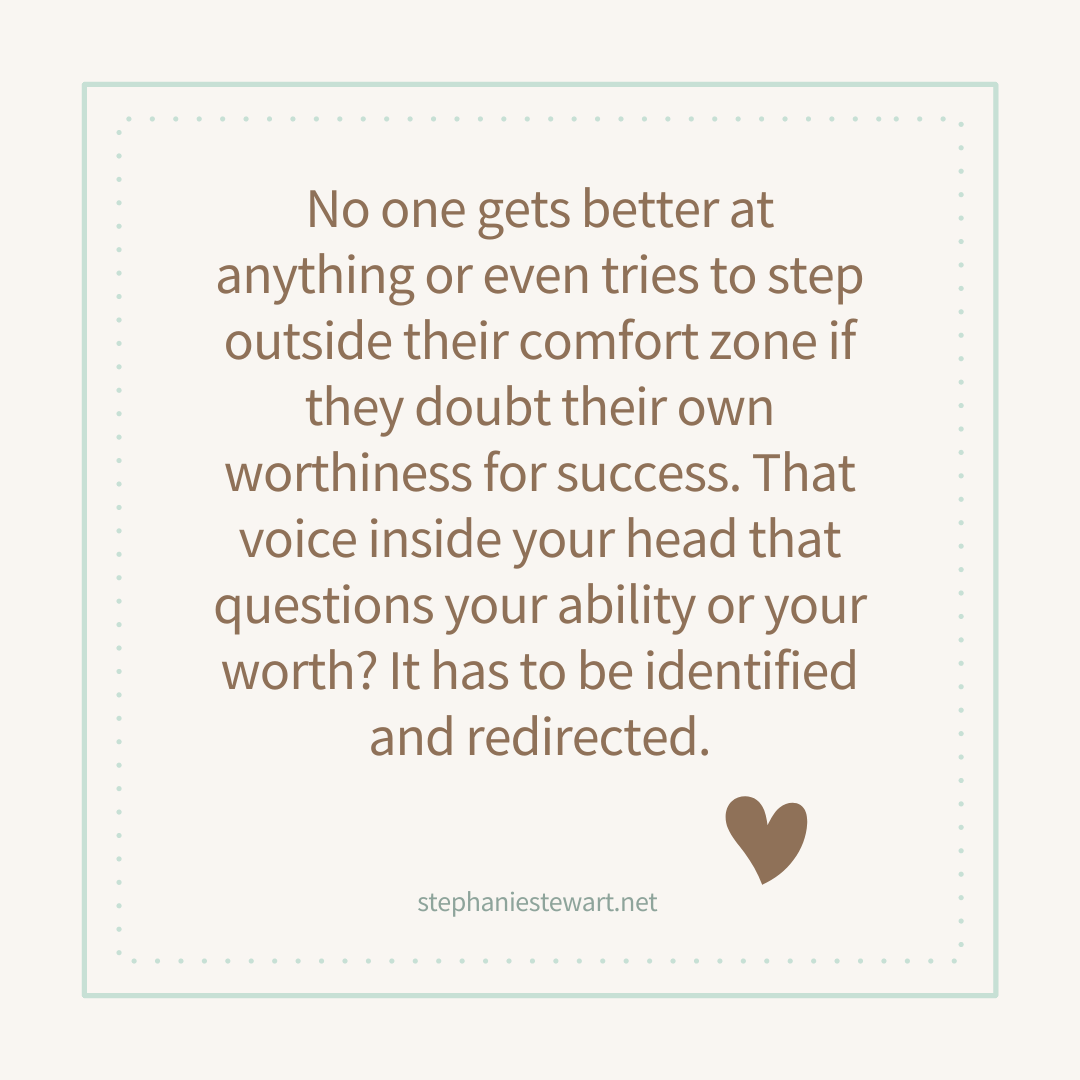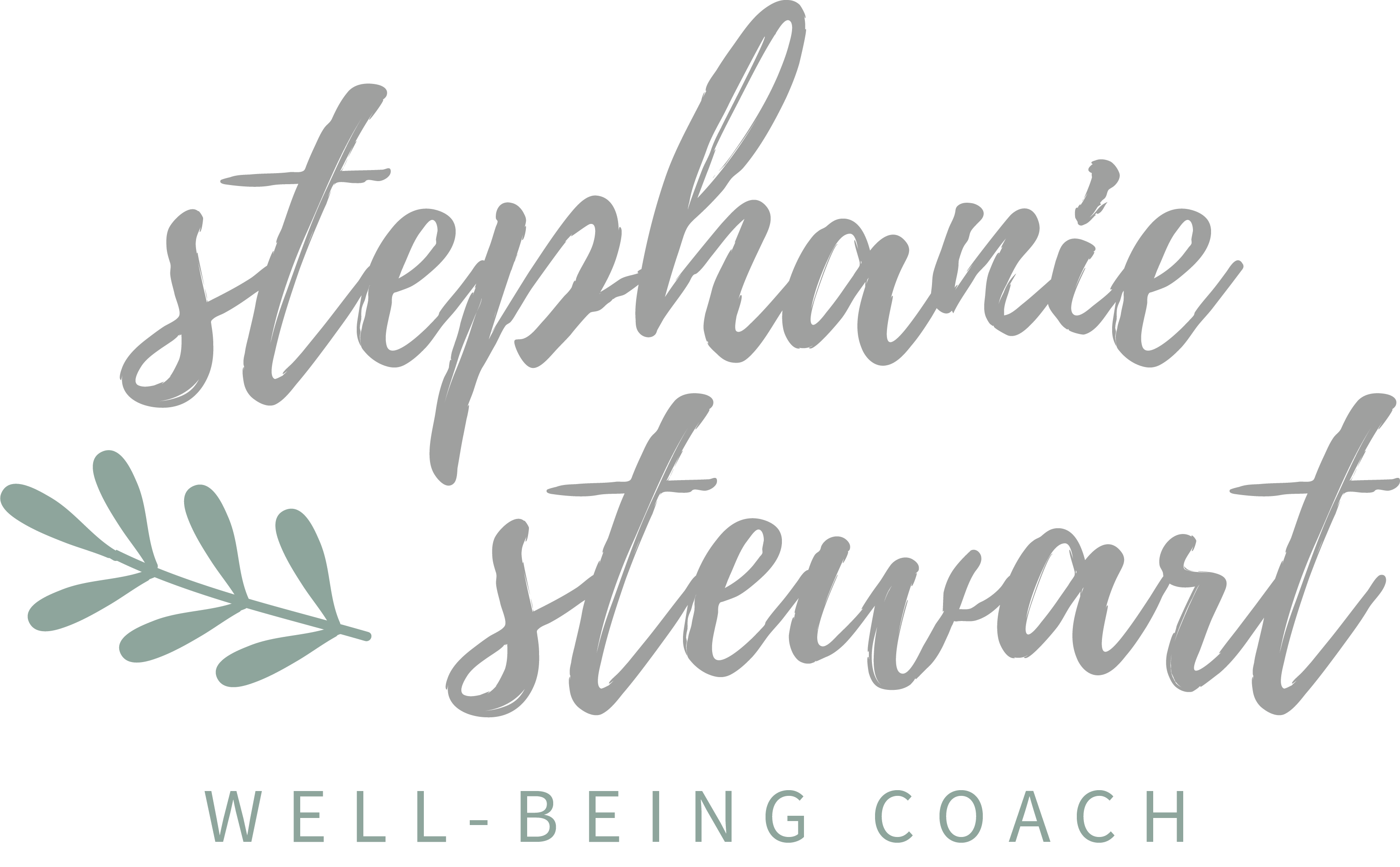
On Being In Practice
I’ve been talking a lot with clients lately on what it means to be “in practice”. There seems to be a disconnect in what we tell ourselves about practicing something that implies that at some point we become the expert. And that in this expert state we no longer need to practice. This isn’t true. While we get better and may even achieve “expert status”, we still have to keep up with our skills. After all, if we don’t use them, we lose them.
Most of us accept this truth when it comes to learning a new skill like playing an instrument. Obviously we need to study and practice in order to learn. And once we learn to play the instrument we need to continue playing it from time to time in order to maintain our skill. If we want to continue to get better, we need to practice even more. Why then is it so hard to accept this about things we do to improve our overall well-being? We make excuses like I’m not good at this or I don’t have time or I tried that once and it didn’t work or it made me uncomfortable. This is something worth exploring if we want to understand ourselves and effect lasting change.
Let go of perfection
The judgement and criticism that we subject ourselves to is the first thing we need to address. No one gets better at anything or even tries to step outside their comfort zone if they they doubt their own worthiness for success. That voice inside your head that questions your ability or your worth? It has to be identified and redirected. In a shame cycle, you aren’t very useful to yourself. Take the instrument metaphor. If you expect, right out of the gate, to be an excellent guitar player and this is the first time you are holding a guitar, you will be very disappointed. You might even give up before you really get started. We have to meet ourselves where we are and give grace to our inadequacies and imperfections. This comes from awareness and acceptance.
When I am talking with my clients about being in practice with mediation, yoga, getting into their body or eating healthy food, I am always encouraging them to develop a practice even when they are feeling good. I do this because these things aren’t bandaids only to be used for acute care when life is turned upside down or we are feeling anxious. By practicing, we are engaging in prevention and cultivating a lifestyle. We also increase our chances of reaching for a healthy tool rather than spiraling when we are overcome by stress, anxiety, or depression.
Pay attention
The excuse of time is a big one. Have you ever made a log of everything you do in one day? From the time you wake up to the time you fall asleep, there are so many hours. How are you spending them? How you spend your time is what you are practicing. And what you practice, you become good at. For example, if you are spending your time scrolling through social media, you will be really good at that. If you are spending your time cleaning and organizing your home, you will have a very clean and organized home. Heres the truth – if you really want to do something, you will find the time. It is about prioritizing and commitment.
Sometimes it is hard to commit and prioritize the things that we know will benefit ourselves first and foremost. What I mean by that is we are often more willing to do for others what we don’t do for ourselves. This is something that we have been conditioned to do by our upbringing and societal pressure, but it doesn’t make it right or healthy. When you prioritize yourself you give others permission to do the same. You also learn to look within yourself for what you need instead of relying on outside sources. In short, you learn to fill your own cup. When your cup is full you have more to give.
Yeah, I did that once
So, you tried to meditate once before and had trouble sitting still? Or you went to a yoga class and felt judged by the lady next to you and you never went back? We have all had experiences like these that left us feeling less than or we didn’t get the outcome we wanted. There’s that pesky perfectionism again. Just because you did something once and you didn’t like it or it didn’t work out the way you wanted is not a reason to throw in the towel. Adjust your expectations. Take a smaller bite. Try meditating for 3 minutes instead of 30. Try a different yoga studio with a different vibe.
Letting go of your attachment to a particular outcome or the way something “should” look will help you to be more mindful. Being mindful means to be attentive and aware to what is happening within and around you. Sitting with that reality and knowing that right now is not forever. This feels this way right now, today. Maybe tomorrow it will feel different.
Growing pains
In my late twenties I borrowed a Jillian Michaels exercise video from my mom. I know, laugh if you want – it’s pretty funny. She was all the rage in the fitness world and I was out of shape after having my first baby. I refused to go to the gym because I didn’t like being around other people who I was certain were looking at me with their judgmental eyes. Looking back I can see that I was deep in a cycle of unworthiness, comparison, and self-judgement. That is a blog post for another day.
Anyway, in the video (which was really hard by the way), she said “get comfortable with being uncomfortable”. She was encouraging all of us who were working out at home to not quit just because we felt some discomfort. It worked for me. She wasn’t saying to push through pain and injury, but she was saying that your brain wants to quit long before your body. That resonated with me and it still does.
I am much gentler with my exercise approach now and that has served me well over the years, but I still hear her voice sometimes in my head. Even during meditation sometimes, especially then, because everything is still and quiet, my brain wants to quit. I want to get out of the discomfort and avoid sitting in it. I want to lean into the distractions and the to-do list. Anything that keeps me from paying close attention to stillness or my breath or my body. Anything that helps me avoid sitting with the discomfort of the moment. But it is in the practice of staying and being with these moments of discomfort that I have experienced my biggest growth. It is not a failure that I had to keep redirecting my thoughts to my breath or to a part on my body over and over again. It means I am doing it. That is the practice.
Practice makes progress
Remember that your practice is your own. It doesn’t have to be perfect. It doesn’t have to look like mine. You don’t need anything special to get started and there is never a “right” time to take the plunge. You have to find the balance between commitment and flexibility. Balance the ease and the effort. This takes trust and being in practice toward your goals will help you feel accomplished and hopeful. In this hopeful state you will be better prepared to take on the uncertainties of life. Why? Because you are well practiced.
<3 Stephanie
